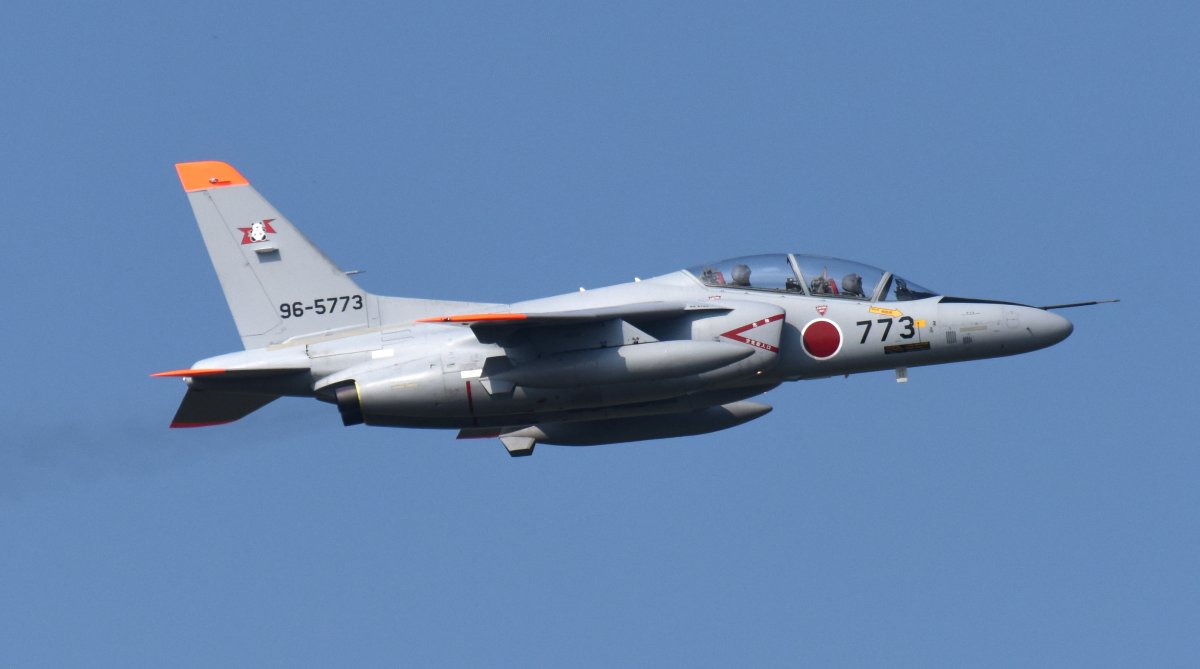China signaled unease this week after the Japanese government took steps to one day export advanced fighter jets it is developing with two NATO members.
"These moves trigger serious concerns among Japan's neighboring countries and the international community," Lin Jian, a spokesperson for China's Foreign Ministry, said on Tuesday.
"We urge Japan to earnestly respect the security concerns of neighboring countries, deeply reflect on its history of aggression, commit itself to the path of peaceful development and earn the trust of its Asian neighbors and the international community through concrete actions" Lin said.
None of Tokyo's other neighbors has publicly raised any similar concerns.
Japan's Foreign Ministry did not immediate return Newsweek's request for comment.
Japan this week relaxed its stringent rules on the transfer of defense equipment, enabling the global export of next-generation fighter jets being codeveloped with Britain and Italy.
Since World War II, Japan has maintained what is considered a pacifist stance on national defense, including certain guardrails that do not permit its government to export certain types of advanced weapons and hardware.
Japan—a long-time U.S. treaty ally bordering the likes of Russia, North Korea and China—otherwise boasts some of the most well-trained and well-equipped troops within its Self-Defense Forces.
The shift in Japan's security posture—including its significant hike in defense spending beyond 2 percent—comes amid China's own expanding military footprint throughout the region, including in the form of more frequent warship, warplane and drone maneuvers around the Japanese archipelago.

The easing of export restrictions on the F-X fighter jet represents the latest adjustment in Japan's materiel transfer rules. The decision has the potential to bring Tokyo closer to other NATO members, too, having publicly backed the North Atlantic Alliance's position in support of Ukraine against Russia's invasion.
Under the new policy, the destination of the exported fighter jets will be restricted to nations that have entered into defense equipment and technology transfer agreements with Japan, a list that currently includes 15 countries including the United States.
Each sale will require separate Cabinet approval as part of the government's commitment to a thorough vetting process. And although the revised rules now permit the export to third countries, the recipients must not be engaged in active combat operations.
Japan's Defense Minister Minoru Kihara said the country would remain committed to the "basic philosophy of a pacifist nation" by way of "strict decision processes" for exports, Japan's Kyodo News reported.
Provisions to allow the export of fighter jets were "necessary" to ensure Japan is seen as a credibility partner in future international defense projects, Japanese Prime Minster Fumio Kishida, who faced opposition from several quarters including within the government, told Japan's parliament.
Kishida approved the updated guidelines following an agreement with Komeito, the ruling Liberal Democratic Party's junior coalition partner, earlier this month.
Outside of transfer of military hardware, Japan is already involved in capacity building throughout the Asia-Pacific and plans to provide a radar system to the Philippines, another U.S. ally.
"The Japanese government's newly updated defense export policy is another historic step for the U.S.-Japan Alliance," Rahm Emanuel, the U.S.'s top envoy in Tokyo, said on X, formerly Twitter, on Thursday.
"With Japan now able to export fully assembled, codeveloped defense tech…it means a stronger, safer and more stable region and world," Emanuel wrote, describing Japan as the U.S.'s "closest ally."
Washington has long considered Tokyo the lynchpin of America's hub-and-spokes alliance system in Asia. The two governments also are set to announce a major shake-up that will allow for greater joint planning between the two militaries.
Uncommon Knowledge
Newsweek is committed to challenging conventional wisdom and finding connections in the search for common ground.
Newsweek is committed to challenging conventional wisdom and finding connections in the search for common ground.
About the writer
Aadil Brar is a reporter for Newsweek based in Taipei, Taiwan. He covers international security, U.S.-China relations, and East Asian ... Read more
To read how Newsweek uses AI as a newsroom tool, Click here.








